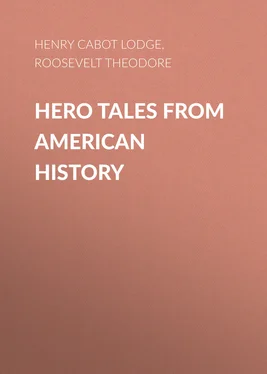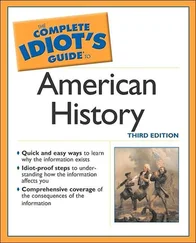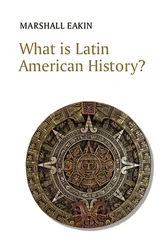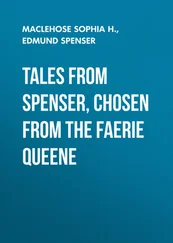Henry Cabot Lodge - Hero Tales from American History
Здесь есть возможность читать онлайн «Henry Cabot Lodge - Hero Tales from American History» — ознакомительный отрывок электронной книги совершенно бесплатно, а после прочтения отрывка купить полную версию. В некоторых случаях можно слушать аудио, скачать через торрент в формате fb2 и присутствует краткое содержание. Жанр: foreign_humor, Юмористические книги, История, foreign_edu, foreign_antique, foreign_prose, на английском языке. Описание произведения, (предисловие) а так же отзывы посетителей доступны на портале библиотеки ЛибКат.
- Название:Hero Tales from American History
- Автор:
- Жанр:
- Год:неизвестен
- ISBN:нет данных
- Рейтинг книги:3 / 5. Голосов: 1
-
Избранное:Добавить в избранное
- Отзывы:
-
Ваша оценка:
- 60
- 1
- 2
- 3
- 4
- 5
Hero Tales from American History: краткое содержание, описание и аннотация
Предлагаем к чтению аннотацию, описание, краткое содержание или предисловие (зависит от того, что написал сам автор книги «Hero Tales from American History»). Если вы не нашли необходимую информацию о книге — напишите в комментариях, мы постараемся отыскать её.
Hero Tales from American History — читать онлайн ознакомительный отрывок
Ниже представлен текст книги, разбитый по страницам. Система сохранения места последней прочитанной страницы, позволяет с удобством читать онлайн бесплатно книгу «Hero Tales from American History», без необходимости каждый раз заново искать на чём Вы остановились. Поставьте закладку, и сможете в любой момент перейти на страницу, на которой закончили чтение.
Интервал:
Закладка:
Fortune favored him. That evening the officers of the garrison had given a great ball to the mirth-loving Creoles, and almost the entire population of the village had gathered in the fort, where the dance was held. While the revelry was at its height, Clark and his tall backwoodsmen, treading silently through the darkness, came into the town, surprised the sentries, and surrounded the fort without causing any alarm.
All the British and French capable of bearing arms were gathered in the fort to take part in or look on at the merrymaking. When his men were posted Clark walked boldly forward through the open door, and, leaning against the wall, looked at the dancers as they whirled around in the light of the flaring torches. For some moments no one noticed him. Then an Indian who had been lying with his chin on his hand, looking carefully over the gaunt figure of the stranger, sprang to his feet, and uttered the wild war-whoop. Immediately the dancing ceased and the men ran to and fro in confusion; but Clark, stepping forward, bade them be at their ease, but to remember that henceforth they danced under the flag of the United States, and not under that of Great Britain.
The surprise was complete, and no resistance was attempted. For twenty-four hours the Creoles were in abject terror. Then Clark summoned their chief men together and explained that he came as their ally, and not as their foe, and that if they would join with him they should be citizens of the American republic, and treated in all respects on an equality with their comrades. The Creoles, caring little for the British, and rather fickle of nature, accepted the proposition with joy, and with the most enthusiastic loyalty toward Clark. Not only that, but sending messengers to their kinsmen on the Wabash, they persuaded the people of Vincennes likewise to cast off their allegiance to the British king, and to hoist the American flag.
So far, Clark had conquered with greater ease than he had dared to hope. But when the news reached the British governor, Hamilton, at Detroit, he at once prepared to reconquer the land. He had much greater forces at his command than Clark had; and in the fall of that year he came down to Vincennes by stream and portage, in a great fleet of canoes bearing five hundred fighting men-British regulars, French partizans, and Indians. The Vincennes Creoles refused to fight against the British, and the American officer who had been sent thither by Clark had no alternative but to surrender.
If Hamilton had then pushed on and struck Clark in Illinois, having more than treble Clark's force, he could hardly have failed to win the victory; but the season was late and the journey so difficult that he did not believe it could be taken. Accordingly he disbanded the Indians and sent some of his troops back to Detroit, announcing that when spring came he would march against Clark in Illinois.
If Clark in turn had awaited the blow he would have surely met defeat; but he was a greater man than his antagonist, and he did what the other deemed impossible.
Finding that Hamilton had sent home some of his troops and dispersed all his Indians, Clark realized that his chance was to strike before Hamilton's soldiers assembled again in the spring. Accordingly he gathered together the pick of his men, together with a few Creoles, one hundred and seventy all told, and set out for Vincennes. At first the journey was easy enough, for they passed across the snowy Illinois prairies, broken by great reaches of lofty woods. They killed elk, buffalo, and deer for food, there being no difficulty in getting all they wanted to eat; and at night they built huge fires by which to sleep, and feasted "like Indian war-dancers," as Clark said in his report.
But when, in the middle of February, they reached the drowned lands of the Wabash, where the ice had just broken up and everything was flooded, the difficulties seemed almost insuperable, and the march became painful and laborious to a degree. All day long the troops waded in the icy water, and at night they could with difficulty find some little hillock on which to sleep. Only Clark's indomitable courage and cheerfulness kept the party in heart and enabled them to persevere. However, persevere they did, and at last, on February 23, they came in sight of the town of Vincennes. They captured a Creole who was out shooting ducks, and from him learned that their approach was utterly unsuspected, and that there were many Indians in town.
Clark was now in some doubt as to how to make his fight. The British regulars dwelt in a small fort at one end of the town, where they had two light guns; but Clark feared lest, if he made a sudden night attack, the townspeople and Indians would from sheer fright turn against him. He accordingly arranged, just before he himself marched in, to send in the captured duck-hunter, conveying a warning to the Indians and the Creoles that he was about to attack the town, but that his only quarrel was with the British, and that if the other inhabitants would stay in their own homes they would not be molested. Sending the duck-hunter ahead, Clark took up his march and entered the town just after nightfall. The news conveyed by the released hunter astounded the townspeople, and they talked it over eagerly, and were in doubt what to do. The Indians, not knowing how great might be the force that would assail the town, at once took refuge in the neighboring woods, while the Creoles retired to their own houses. The British knew nothing of what had happened until the Americans had actually entered the streets of the little village. Rushing forward, Clark's men soon penned the regulars within their fort, where they kept them surrounded all night. The next day a party of Indian warriors, who in the British interest had been ravaging the settlements of Kentucky, arrived and entered the town, ignorant that the Americans had captured it. Marching boldly forward to the fort, they suddenly found it beleaguered, and before they could flee they were seized by the backwoodsmen. In their belts they carried the scalps of the slain settlers. The savages were taken redhanded, and the American frontiersmen were in no mood to show mercy. All the Indians were tomahawked in sight of the fort.
For some time the British defended themselves well; but at length their guns were disabled, all of the gunners being picked off by the backwoods marksmen, and finally the garrison dared not so much as appear at a port-hole, so deadly was the fire from the long rifles. Under such circumstances Hamilton was forced to surrender.
No attempt was afterward made to molest the Americans in the land they had won, and upon the conclusion of peace the Northwest, which had been conquered by Clark, became part of the United States.
THE BATTLE OF TRENTON
And such they are—and such they will be found:
Not so Leonidas and Washington,
Their every battle-field is holy ground
Which breathes of nations saved, not worlds undone.
How sweetly on the ear such echoes sound!
While the mere victor's may appal or stun
The servile and the vain, such names will be
A watchword till the future shall be free.
In December, 1776, the American Revolution was at its lowest ebb. The first burst of enthusiasm, which drove the British back from Concord and met them hand to hand at Bunker Hill, which forced them to abandon Boston and repulsed their attack at Charleston, had spent its force. The undisciplined American forces called suddenly from the workshop and the farm had given way, under the strain of a prolonged contest, and had been greatly scattered, many of the soldiers returning to their homes. The power of England, on the other hand, with her disciplined army and abundant resources, had begun to tell. Washington, fighting stubbornly, had been driven during the summer and autumn from Long Island up the Hudson, and New York had passed into the hands of the British. Then Forts Lee and Washington had been lost, and finally the Continental army had retreated to New Jersey. On the second of December Washington was at Princeton with some three thousand ragged soldiers, and had escaped destruction only by the rapidity of his movements. By the middle of the month General Howe felt that the American army, unable as he believed either to fight or to withstand the winter, must soon dissolve, and, posting strong detachments at various points, he took up his winter quarters in New York. The British general had under his command in his various divisions twenty-five thousand well-disciplined soldiers, and the conclusion he had reached was not an unreasonable one; everything, in fact, seemed to confirm his opinion. Thousands of the colonists were coming in and accepting his amnesty. The American militia had left the field, and no more would turn out, despite Washington's earnest appeals. All that remained of the American Revolution was the little Continental army and the man who led it.
Читать дальшеИнтервал:
Закладка:
Похожие книги на «Hero Tales from American History»
Представляем Вашему вниманию похожие книги на «Hero Tales from American History» списком для выбора. Мы отобрали схожую по названию и смыслу литературу в надежде предоставить читателям больше вариантов отыскать новые, интересные, ещё непрочитанные произведения.
Обсуждение, отзывы о книге «Hero Tales from American History» и просто собственные мнения читателей. Оставьте ваши комментарии, напишите, что Вы думаете о произведении, его смысле или главных героях. Укажите что конкретно понравилось, а что нет, и почему Вы так считаете.












